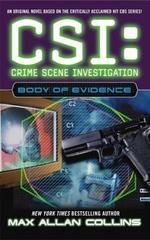I get asked this question a lot…but it’s disingenuous, since I’m a
TV writer/producer and whoever is asking me that is really asking me to either read
their script or to invite them in to pitch. So, theoretically, they already
know somebody in the business.
They’re luckier than I was when I got started. I didn’t know
anybody in the TV industry. But I got in. How did I do it? Everybody’s story is
unique. Most of those stories, however, share one common element. You have to
put yourself in the right place to get your lucky break. And it’s easier than
you think.
The first thing you have to do is learn your craft. Take
classes, preferably taught by people who have had some success as TV writers.
There’s no point taking a class from someone who isn’t an experienced TV writer
themselves.
You’d think that would be common sense, but you’d be
astonished how many TV courses are taught by people who don’t know the first
thing about writing for television or who, through a fluke, sold a story to Manimal twenty years ago and think that
qualifies them to take your hundred bucks. Even more surprising is how many
desperate people shell out money to take courses from instructors who should be
taking TV writing courses themselves.
There’s another reason to take a TV writing course besides
learning the basics of the craft. If you’re the least bit likeable, you’ll make
a few friends among the other classmates. This is good, because you’ll have
other people you can show your work to. This is also good because somebody in
the class may sell his or her first script before you do… and suddenly you’ll
have a friend in the business.
Many of my writer/producer friends today are writers I knew
back when I was in college, when we were all dreaming of breaking into TV some
day.
A writer we hired on staff on the first season of Missing was in a Santa Monica screenwriters group… and was the
first member of her class to get a paying writing gig. Now her friends in the
class suddenly had a friend on a network TV show who could share her knowledge,
give them practical advice and even recommend them to her new agent and the
writer/producers she was working with.
Another route is to try and get a job as a writer/producer’s
assistant on an hour-long drama. Now only will you get a meager salary, but you
will see how a show works from the inside. You’ll read lots of scripts and
revisions and, simply by observation, get a graduate course in TV writing. More
important, you’ll establish relationships with the writers on the show and the
freelancers who come through the door. Many of today’s top TV producers were writer/producer
assistants once. All of the assistants I’ve had have gone on to become working
TV writers themselves… and not because I gave them a script assignment or
recommended them for one. I didn’t do either.
The first step towards getting into pitch a TV producer for
an episodic writing assignment is to write an episodic teleplay on spec.
Read more



